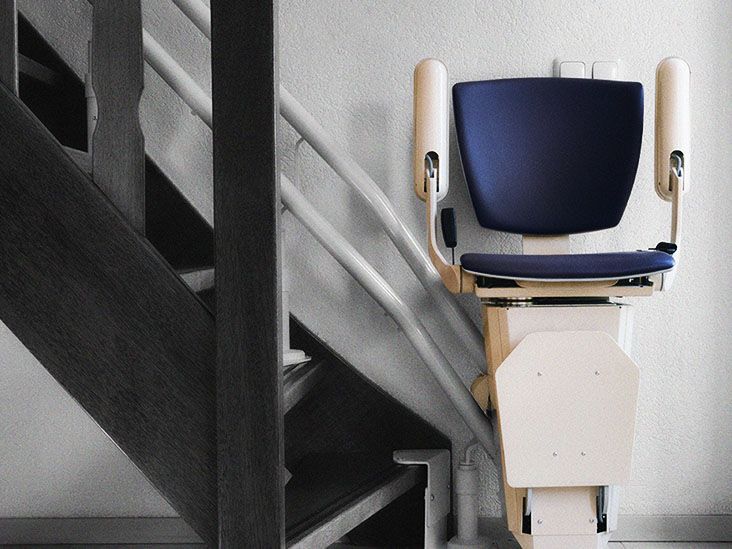Have you ever found yourself wondering if Medicare can help with those ever-rising grocery bills? You're not alone. As someone who's navigated the Medicare maze myself, I know how confusing it can be to separate fact from fiction when it comes to what's actually covered.
Here's the straight talk: Original Medicare (Parts A and B) doesn't cover your weekly grocery runs or monthly food shopping. It's kind of like expecting your car insurance to pay for gas not quite how it works. But here's where it gets interesting Medicare Advantage plans (Part C) can sometimes step in to lend a hand with your food budget.
Let me walk you through this like we're having coffee together, discussing the options that could make your life a bit easier.
Understanding Your Options
Think of Original Medicare as the basic framework of your healthcare coverage. It's solid and reliable for hospital stays and doctor visits, but when it comes to everyday living expenses like groceries, it's pretty hands-off. No amount of wishing will make Part A or Part B suddenly start covering your apples and oranges.
However, Medicare Advantage plans are like that friend who always shows up with helpful extras. These private insurance plans, which must cover everything Original Medicare does, often add supplemental benefits. And yes, that can include help with food expenses.
The magic phrase here is "Special Supplemental Benefits for the Chronically Ill" or SSBCI. Sounds official, right? But what it really means is that if you have ongoing health conditions, your Medicare Advantage plan might recognize that eating well is part of staying healthy.
How These Benefits Work
Let's get into the nitty-gritty of how these grocery benefits actually work in real life. Imagine receiving a monthly allowance specifically for food shopping sounds pretty great, doesn't it?
The amounts can vary quite a bit depending on your specific plan and where you live. For instance, some Humana plans offer anywhere from $25 to $225 per month, which adds up to a nice chunk of change over a year. But remember, not all plans are created equal, and the specifics can change from year to year.
Most of the time, you'll receive this benefit through what's essentially a prepaid debit card. You know, the kind that feels almost like magic money except it's very real and very helpful. These cards typically work at major grocery chains and many smaller retailers, making it convenient to use wherever you normally shop.
The beautiful part? You're not restricted to just generic or processed foods. Many of these cards can be used for fresh produce, quality meats, dairy products, and even deli items. Some plans have expanded the definition to include over-the-counter health products, which means you might be able to pick up vitamins or pain relievers while you're at it.
Who Qualifies for Help
Now, here's where things get a bit more specific. These grocery benefits aren't available to everyone on Medicare Advantage they're primarily designed for people with chronic health conditions. It makes sense when you think about it better nutrition can genuinely impact conditions like diabetes, heart disease, or COPD.
If you're living with conditions such as diabetes, heart failure, COPD, or even cancer, you might be in luck. These programs recognize that managing chronic conditions often requires special dietary considerations, and having financial support for nutritious food can make a real difference in your daily life.
Some plans take it a step further and might even deliver meals to your door after a hospital stay, recognizing that proper nutrition is crucial during recovery. It's these thoughtful touches that can make all the difference when you're focused on getting back on your feet.
| Chronic Condition | Typical Grocery Benefit Eligibility |
|---|---|
| Diabetes | High - Special dietary needs |
| Heart Failure | High - Sodium and fluid restrictions |
| COPD | Moderate - Weight management needs |
| End Stage Renal Disease | High - Strict dietary limitations |
| Cancer | Moderate - Nutritional support during treatment |
The key thing to remember is that eligibility often depends on your specific plan and insurer. Just because one Medicare Advantage plan offers grocery benefits doesn't mean they all do. It's like comparing different restaurants they might all serve dinner, but the menu and quality can vary significantly.
Finding the Right Plan
So how do you find out if your plan offers these benefits, or if there's a better option available? The good news is that Medicare makes this relatively straightforward through their Plan Finder tool. It's like having a helpful guidebook that can point you toward plans that match your specific needs.
When you're searching, look for terms like "healthy food benefits," "grocery allowance," or "nutritional support" in the plan descriptions. These are usually clearly marked, and the information is updated annually during the enrollment period.
I can't stress enough how important it is to verify any information you receive about these benefits directly through official channels. Unfortunately, there are scammers out there who prey on people's hopes for extra assistance. Legitimate grocery benefits only come through your actual Medicare Advantage insurer never through unsolicited phone calls or texts promising instant savings.
The Real Impact of These Benefits
Let's talk about what these grocery benefits actually mean for real people. In a country where many seniors face food insecurity, even a modest monthly allowance can make a significant difference in managing health conditions and maintaining quality of life.
Imagine being able to consistently buy fresh vegetables instead of relying on processed convenience foods because they're all you can afford. Picture the peace of mind that comes from knowing you can maintain a proper diet without constantly worrying about the budget. These aren't just dollars and cents they represent the ability to take better care of yourself.
I remember talking to a friend who started receiving grocery benefits through her Medicare Advantage plan. She had diabetes and was always careful about her diet, but the financial strain was real. When she started receiving that monthly allowance, she told me it felt like a weight had been lifted off her shoulders. Not only could she afford better quality foods, but she also felt supported in her health journey.
Things to Keep in Mind
While these benefits are genuinely helpful, there are a few things you should be aware of. First, not all retailers participate in these programs. It's like having a gift card that only works at certain stores convenient when your regular grocery store is included, but potentially limiting if you prefer shopping elsewhere.
There are also restrictions on what you can purchase with these cards. While they cover many food items and some health-related products, they're not meant to be general spending money. Think of them as purposeful support for your nutritional needs rather than extra cash for anything.
Another consideration is whether unused benefits roll over to the next month. Some plans offer this feature, while others have a "use it or lose it" policy. It's worth checking the specifics in your plan documentation to understand how it works for your situation.
Making the Most of Your Benefits
If you do qualify for grocery benefits through your Medicare Advantage plan, there are smart ways to maximize their value. Start by making a list of participating retailers in your area so you know where you can shop. Many plans provide this information online or through customer service.
Consider planning your meals around the items you can purchase with your benefit card. This isn't just about making your money go further it's also about ensuring you're getting the nutrition that can help manage your health conditions.
Keep track of your spending and any restrictions on your card. Some people find it helpful to set aside time each week to plan their grocery shopping around their benefit allowance, almost like creating a mini-budget within their overall food spending.
Looking Ahead
The landscape of Medicare benefits is always evolving, and it's exciting to see more plans recognizing the connection between nutrition and health. As we learn more about how food impacts chronic conditions, I expect we'll see even more innovative approaches to supporting seniors in maintaining healthy diets.
In the meantime, these grocery benefits represent a practical way that healthcare plans are trying to address real-world challenges. They acknowledge that staying healthy isn't just about doctor visits and medications it's also about having access to nutritious food.
If you're curious about whether you might qualify for these benefits, I encourage you to explore your options. Check your current plan details, look into what's available in your area, and don't hesitate to reach out to plan representatives with questions.
Remember, taking care of your health includes taking care of your nutritional needs, and any support that makes this easier is worth exploring. After all, the goal is to help you live your best, healthiest life and sometimes that starts with something as simple as making grocery shopping a little less stressful.
What do you think about these grocery benefits? Have you experienced them firsthand, or are you considering looking into them? I'd love to hear about your experiences or answer any questions you might have about navigating these options.
FAQs
Does Original Medicare cover grocery expenses?
No, Original Medicare (Parts A and B) does not cover grocery expenses. These costs may be covered by some Medicare Advantage plans under specific conditions.
What is the SSBCI benefit for grocery support?
SSBCI stands for Special Supplemental Benefits for the Chronically Ill. It allows certain Medicare Advantage plans to offer grocery benefits to eligible members with chronic conditions.
Who qualifies for Medicare grocery benefits?
People with chronic conditions like diabetes, heart failure, COPD, cancer, or kidney disease may qualify. Eligibility depends on your plan and insurer.
How much grocery allowance can I receive?
Monthly allowances vary by plan and location, typically ranging from $25 to $225 per month through prepaid debit cards accepted at major retailers.
Can I use my grocery benefit anywhere?
No, these benefits are usually restricted to participating retailers. Check with your plan for a list of approved stores and any purchase limitations.
Disclaimer: This article is for informational purposes only and does not constitute medical advice. Always consult with a healthcare professional before starting any new treatment regimen.
Related Coverage
Learn how Medicare nonparticipating providers work, including billing practices and out-of-pocket costs. Get informed today....
Research shows crossword puzzles may help strengthen the brain and slow cognitive decline in those with Parkinson's disease. Learn how crosswords can aid as a supplement to Parkinson's treatment....
Boost veggie consumption by adding produce to meals and snacks, trying new cooking methods, discovering new veggies, making simple swaps, and leveraging seasonal produce....
Learn how to choose the best glycemic index (gi) brands of bread, cereal, pasta and more for managing blood sugar if you have diabetes or prediabetes....
SilverSneakers Medicare coverage offers free fitness benefits for adults 65+. Check if your plan includes this valuable wellness program....
Find out if Medicare covers Uber rides for medical appointments and discover alternatives to make transportation easier and more affordable....
Facing Medicare problems? The Medicare Ombudsman helps resolve unresolved issues with coverage, billing, and claims....
Find the best Montana Medicare options for your needs. Compare plans, save money, and get the coverage you deserve in Big Sky Country....
Aging in place lets you stay in your home safely with the right planning, support, and simple modifications. Start your journey today....
Find out how Medicare hospice coverage works, the benefit periods, what's covered, costs and how long you can receive care....









